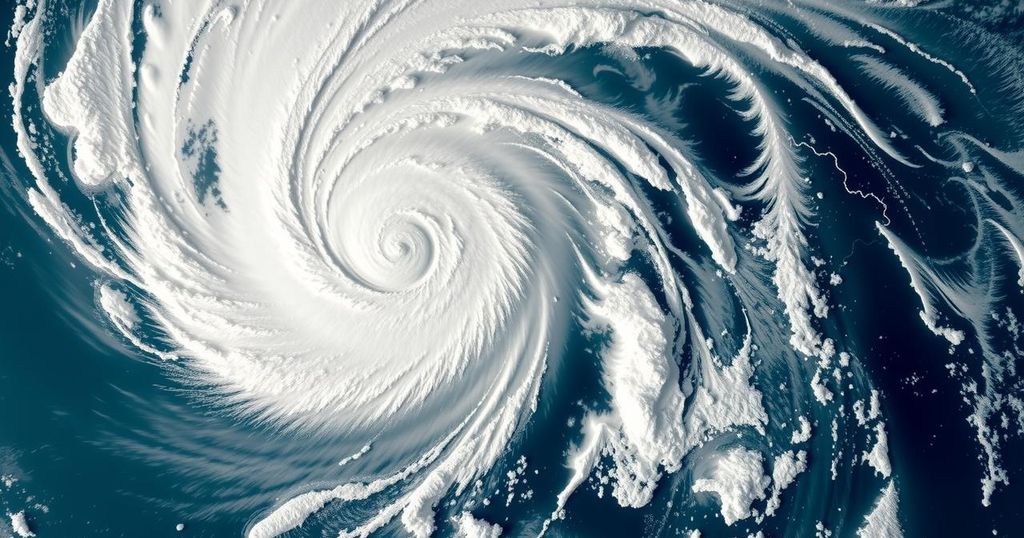Tropical Cyclone Chido Impacts Southern Africa – December 2024 Update
Tropical Cyclone Chido made landfall in Mozambique on 15 December 2024, as a category 4 cyclone, causing strong winds and heavy rainfall. The storm is expected to affect southern Malawi before dissipating near Zimbabwe. Over 1.7 million in Mozambique and 440,000 in Malawi are threatened, with current assessments ongoing and support from the UN and other partners.
On 15 December 2024, Tropical Cyclone Chido made landfall in Mozambique, impacting the region with severe winds and substantial rainfall. This category 4 cyclone struck approximately 35-40 kilometers south of Pemba city, unleashing winds reaching speeds of 260 kilometers per hour and rainfall amounting to 250 millimeters over a 24-hour period. The cyclone’s remnants are projected to affect southern Malawi, with expected heavy rains and winds continuing until 17 December. The extensive weather system threatens more than 1.7 million individuals in Mozambique and 440,000 in Malawi.
The cyclone’s impact was notably severe in Cabo Delgado, with severe flooding risks prompting assessments by humanitarian agencies. While infrastructure damage and power outages were reported, early data suggested preliminary damage assessments in Nampula Province. The UN and allied organizations are actively assisting local governments in preparedness efforts and damage evaluations. The situation remains fluid, with advisories urging residents in affected areas to stay informed via their national weather services.
In neighboring Comoros, Chido caused minor injuries and displacement among households, primarily affecting infrastructure due to localized flooding. Countries such as Angola, Botswana, and Tanzania, along with Zambia and Zimbabwe, are forecasted to experience significant rainfall which could exacerbate conditions leading to flash floods or mudslides. The Department of Climate Change and Meteorological Services in Malawi is closely monitoring the cyclone’s progression, with projections indicating a continuation of severe weather into the early morning of 16 December.
The phenomenon of tropical cyclones is a common occurrence in the Southern African region, with major implications for biodiversity, agriculture, and human settlement. The UN Office for the Coordination of Humanitarian Affairs (OCHA) frequently engages in preparedness measures to mitigate the impacts of such meteorological events. In this particular situation, Cyclone Chido represents a significant weather event, prompting coordinated responses from various humanitarian partners, as well as government authorities across the affected nations.
In summary, Tropical Cyclone Chido poses a significant threat to millions residing in its path, particularly in Mozambique and Malawi. The storm has already caused widespread infrastructural damage and poses ongoing risks of flooding and mudslides in surrounding regions. Swift action from humanitarian organizations and national authorities will be crucial in mitigating the storm’s impact and addressing the needs of affected populations in the coming days.
Original Source: reliefweb.int




Post Comment